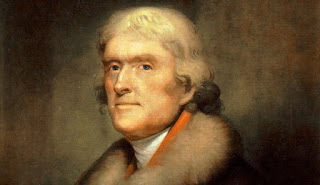The Enititlement Polka
First a hurricane, then I spent a good part of this past week fighting a virus. What next? Well, how about a rehash of a couple of 2011 posts I did on government entitlements? What with all the recent talk of "tax reform" and government aid for people in Texas, Puerto Rico, and right here in Florida (though not in my neck of the woods so much), it's still an issue on our doorsteps. And it's still a reminder that the church at large is not doing it's job, which is why the feds are doing it instead. There's a minor exception to the trend in things like MediShare. But last I looked into that, it was worthless for people who need such things as maintenance prescription drugs. I hope that has changed. ** Ruminations by various parties in the news over the current financial crisis have focused on the alleged importance of what are termed "entitlements" -- things like Social Security and Medicare. I have certain views on the practicality of such p
